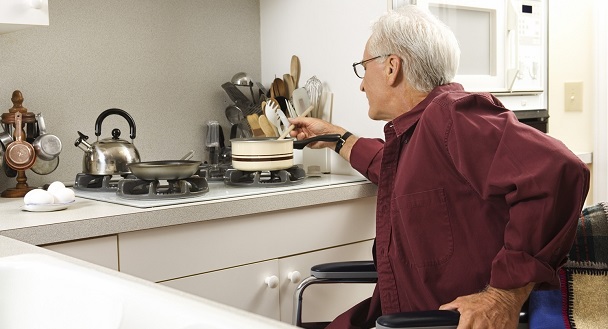
When you are left to sell the estate of someone who has died, it can be a complicated process. The process of selling a probate property has more complications than an ordinary property transaction, and it is not something that many people have to deal with often. This guide explains what probate is, how it works and how to sell a house in probate.
What Is Probate?
The process of dealing with the estate of someone who has passed away is called probate. It includes clearing their debts and distributing their assets following the wishes made out in their will. If the person who passed away was the sole owner of a property in the UK, then a Grant of Probate is a requirement to sell that property.
This grant of probate will name the person or company who has the legal authority to enter and sign contracts on behalf of the estate, including contracts to sell the property.
If you are left responsible for executing someone’s will, there are some specific rules that set out how to notify the authorities and distribute the estate. Be careful to check all these rules before doing anything with the estate.
What Happens After A Property Owner Dies?
When an owner of a property passes away, they should have a will that specifies one person to deal with their estate. If there is no will then the deceased’s next of kin will be given this responsibility. This person will be in charge of all the legal affairs and can obtain probate to enable them to transfer or sell the property.
If the property is going to be sold, then probate is needed to do this in compliance with the terms of the will. What happens to a property after the owner dies usually depends on what the beneficiaries plan to do with it, and often it will be several weeks following the death and reading of the will before any decision is made.
When you are left a property as an inheritance, you will have the choice of either selling it, renting it out or moving into it. Take time to carefully decide which options will work best for you and your current situation.
How Much Does It Cost To Sell A Probate Property?

Selling a probate property shouldn’t involve any additional legal costs compared with any other property sale using an estate agent. There are however some other costs that the seller might need to cover when selling a probate property. Usually, there are some costs involved with clearing the property before putting it up for sale; this might include moving costs or cleaning fees. Some families opt to use a professional cash house buyer if the property needs refurbishment or needs to be sold quicky.
Vacant property insurance is also an important additional cost to consider, as the property will need to be insured while it is on the market, and it is a requirement for any property left unoccupied for over 30 days. Other additional costs could include valuations for the probate property, as well as any maintenance costs if the house needs some work.
It is recommended that you get at least three independent valuations on a property in order to properly determine the appropriate inheritance tax.
Who Is The Executor Of A Will?
The person responsible for administering probate is known as the executor, and in most cases, this person is appointed in the deceased’s will. Many people choose to have a family member or friend as their executor, but it is also possible to select a professional executor.
A professional executor will generally expect to be paid from the proceeds of the estate in exchange for carrying out the duty. Most people will first experience probate when a loved one passes away and has named them as their executor. There is no requirement for the deceased to have asked you or got your permission to appoint you as their executor. If there is no will available, then the estate will be subject to intestacy rules and be administered by the next of kin.
It is possible to decline to be an executor. In this case, you will have to sign a Renunciation which will resign you from the position. This doesn’t affect any entitlements you might have as a beneficiary.
What If Probate Is Contested?
It is possible for probate to be contested and this can prevent you from being given a grant of probate. A relative or beneficiary of the deceased might decide to enter a caveat which could affect probate being granted. The person who places as a caveat on an estate must give their reasons within eight days, or it will be lifted. If this does go ahead, then it must be resolved by courts in order for the caveat to be removed and probate to be granted.
A caveat might be entered if there are questions about the legitimacy of the will, or if two people are both entitled to apply for probate.





